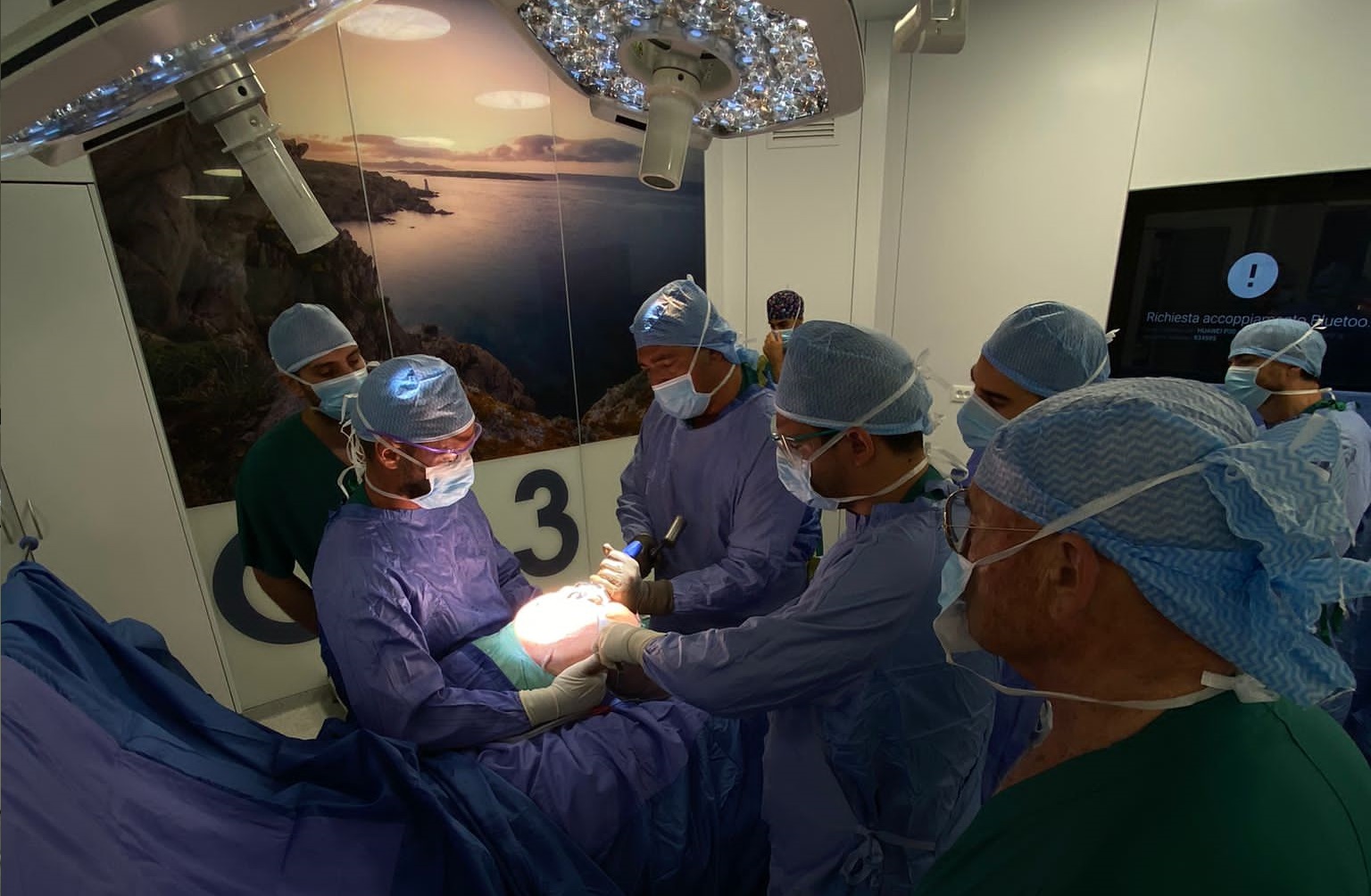Arthrosis it is a degenerative disease that affects the cartilage and causes severe pain in the joints. The orthopedics and traumatology department of Mater Olbia Hospital, with over 700 surgeries performed in 2020, brings the regenerative medicine, a surgical treatment that allows the repair of compromised tissues by postponing the use of prosthetic surgery.
The Prof. Vincenzo De Santis, responsible Orthopedics and Traumatology Department of Mater Olbia Hospital.
Prof. De Santis what are the symptoms of osteoarthritis?
Typically the patient reports intense pain affecting the knee, hip or shoulder limiting normal daily activities and progressively reducing the quality of life. As this is a progressive degenerative pathology, in addition to the wear of the articular cartilage, the underlying bone is also damaged and all joint structures are progressively involved (ligaments, menisci, capsule, synovial membrane, etc.). These degenerative manifestations will initially reduce joint movement and then create real deformities of the affected joint.
In this way, osteoarthritis causes pain, especially when loaded, and progressive limitation of the range of motion and strength. The person at first complains of pain only in making some particular movements or after walking for a long time or at the end of a day spent standing, but with the subtle progression of the pathology there is a real loss of independence. Over time, he manages to travel only short distances and is no longer able to climb stairs, get up from sitting, squat, tie his shoes or put on socks, drive the car, all with progressive pain and possible limb sagging, up to it is also necessary to use walking aids. The progression of osteoarthritis therefore determines the progressive loss of walking autonomy and the deterioration of the quality of life.
What possible solutions?
There are essentially three therapeutic scenarios. Prosthetic surgery, preventive surgery through regenerative medicine and conservative therapy.
When the functionality of the joints is compromised, when the pain becomes important and when the instrumental investigations show a very advanced stage of osteoarthritis, it may be necessary the surgical operation. The surgeon’s indication on proceeding with the prosthetic intervention is based on the clinical history, physical examination, imaging evaluation, expectations and requests of the individual patient.
With advancing age, osteoarthritis represents the pathological condition that most frequently leads to prosthetic replacement surgery. However, even in younger people, especially sportsmen, arthrosis may be present especially as a result of trauma or congenital problems.
For prosthetic replacement interventions, in addition to making use of minimally invasive and conservative techniques which, among other advantages, allow a faster recovery, we carry out interventions of personalized medicine with the use of impianti protesici custom made, patient specific instruments and the aid of robotic and computer-assisted surgery that allow the faithful reproduction of the patient’s anatomy.
Patients requiring arthroplasty are initially referred to our orthopedic specialists at our divisional clinic. Subsequently, according to the specific clinical case, the patient is sent to an accurate diagnostic procedure (radiography, magnetic resonance, ultrasound).
With a view to maximum safety and quality of care, all candidates for surgery are also subjected to a cardiological and internal check-up (in which the state of health as a whole is assessed). The post-operative phase is followed by the physiatric medical team for proper rehabilitation and rapid recovery.
Prof. De Santis preventive surgery is considered the new frontier of orthopedic surgery, what is it about?
Without a doubt the regenerative medicine is an area of interest involving cartilage pathologies. In recent years, the use of mesenchymal stem cells (MSCs) has been spreading. They are undifferentiated cells that, in contact with other cells, can differentiate and become like the cells to which they are close. These, in particular, represent a form of stem cells of the “multipotent” type, which means that they can give rise to a series of cells from different tissues such as bone, cartilage and adipose tissue.
We always talk about surgery, how does it work?
Regenerative surgery involves the removal of adipose tissue or bone marrow from the patient, from which some adult stem cells (mesenchymal) are isolated and then implanted in the damaged joint to regenerate the cartilage. The perspectives are very fascinating for the possibility of reaching the real regeneration of degenerated anatomical structures.
Can this technique be used for all patients?
From the studies it emerges that it is certainly a very promising method, but it cannot be thought of using it for any problem or pain of a joint and it cannot be indicated to all patients. Eligibility for treatment is assessed by a specialist based on specific characteristics. For this reason it is important to address the problem in time.
What can a patient who is not eligible for surgery do?
When there is still no clear surgical indication, or when the surgical indication is excluded, we use conservative treatments which include medical therapy with specific drugs for osteoarthritis, physiokinesitherapy, infiltration of hyaluronic acid or cortisone and neuromodulation by radiofrequency with the help of the pain therapist.
For more information, you can write to the email address [email protected].
(Visited 857 times, 21 visits today)
